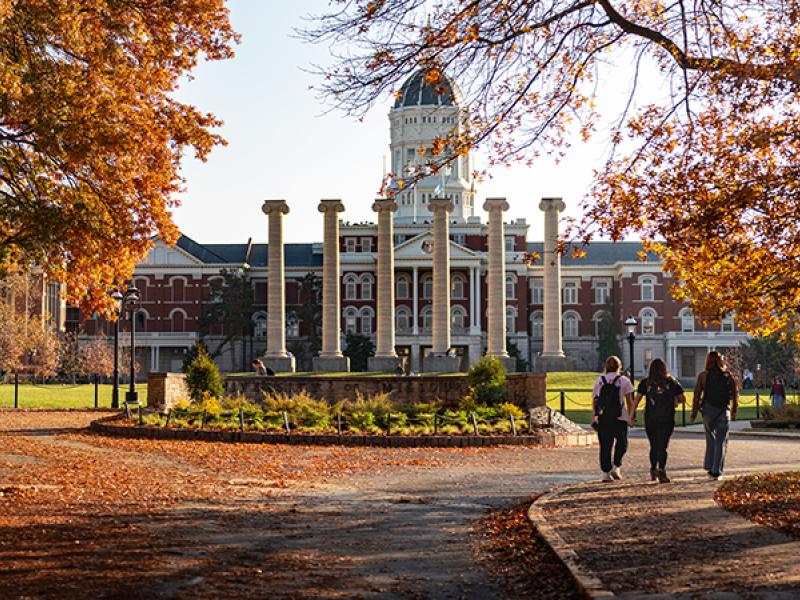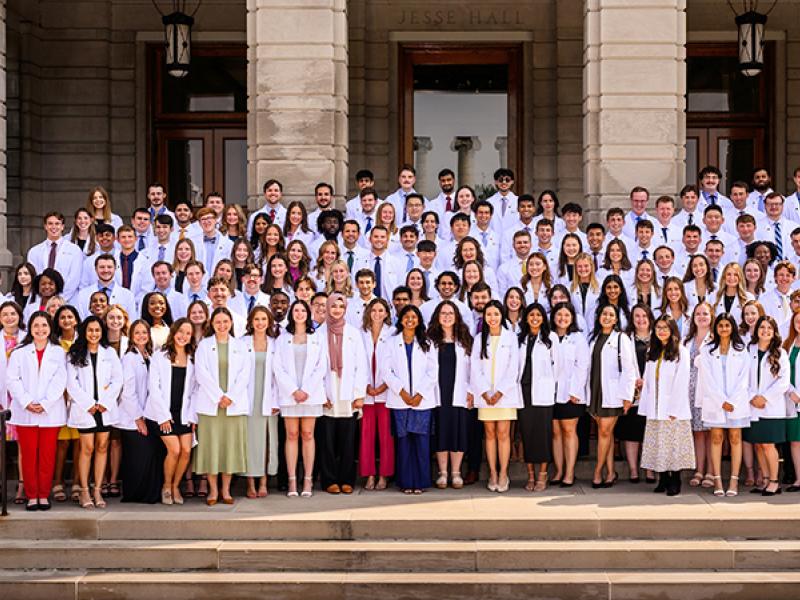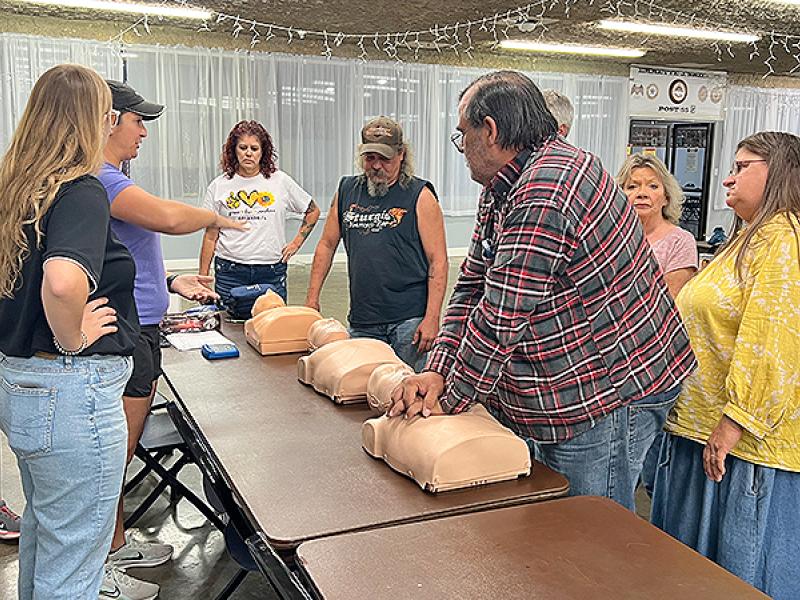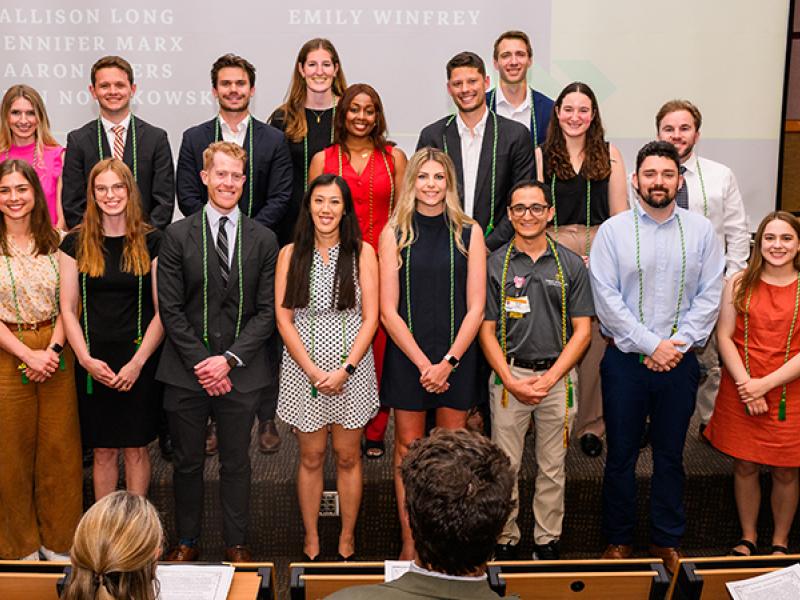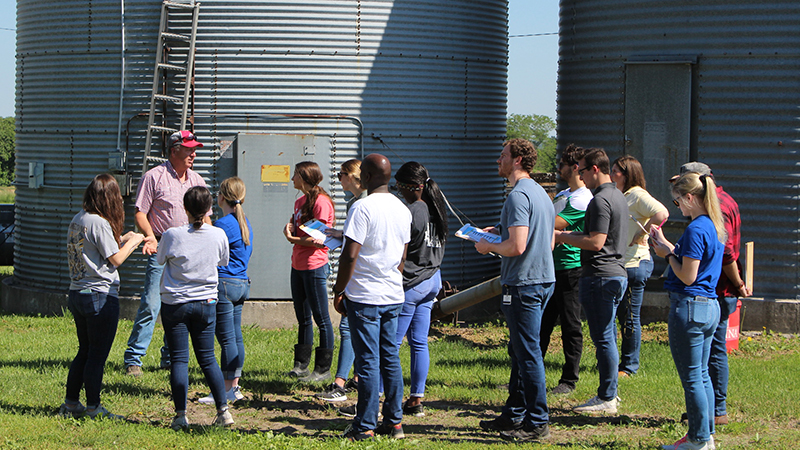
Bingyue Zhang experienced a culture shock at age 17 when she moved from Jinan, China, to Lawson, Missouri. She came to appreciate the small town and its people and even decided she would like to help them one day as a doctor.
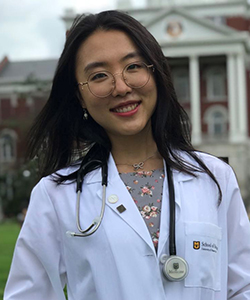
“In Lawson, we only have one medical clinic,” Zhang said. “There is no emergency care unless you have the time and gas to drive and seek help. The people in Lawson are so friendly, and the last thing I want to see is someone get hurt and not receive the care they need.”
Now a rising second-year student at the School of Medicine, Zhang was one of 24 students who gained real-world experience for practicing in a rural area through the Clinical Rural Immersion (CRI) program. The students from the MU School of Medicine, MU’s Sinclair School of Nursing and the UMKC School of Pharmacy spent June 1-11 in Sedalia.
The students spent about half their time in clinic with a local nurse, physician or pharmacist. They also completed a windshield survey by driving through the area and taking notes about population demographics and the availability of public services and health care, visited two farms in Pettis and Benton Counties to learn about agricultural safety, met with EMTs in Warsaw to discuss farm hazards, conducted a rural health screening outdoors for employees at a local manufacturer and wrote reflections on their experiences in Sedalia.
“I knew nothing about farming and farm safety before this program, and I learned all about equipment safety hazards and the dangers that come with each season,” Zhang said. “It was an eye-opening experience.”
Meeting with a panel of health care professionals based in Sedalia allowed the students to expand their understanding of Bothwell Regional Health Care and ways the interdisciplinary team approach enhances patient-centered care. On the last day, five student groups presented their public health findings to an audience that included District 52 state representative Brad Pollitt, Sedalia Chamber of Commerce members, MU Extension and Bothwell Regional Health Care representatives.
“Clinical Rural Immersion gives students from multiple disciplines an opportunity to experience rural communities together to enhance each other’s perspectives and potentially practice in these areas in the future,” said Sheila Marushak, senior program and project coordinator for the Rural Scholars Program. “Research shows that the more exposure medical students have with a rural practice, the more likely they are to return to a rural practice.”
The CRI, which is a part of the MU School of Medicine’s Rural Scholars Program, began last year and was made possible by a grant from the Health Resources and Services Administration (HRSA). The Rural Scholars Program is helping future health care leaders such as Zhang to learn about rural medicine to improve Missouri’s ongoing rural doctor shortage. CRI wouldn’t be possible without the academic-community partnership between the School of Medicine, Sedalia’s hospital and the community.
For a rural health care system like Bothwell Regional Health Center, one of the greatest challenges is attracting a sufficient number of high-quality providers to its community. Dr. Phil Fracica, Bothwell’s chief medical officer, said the health center’s relationship with MU has been a “game-changer” in its recruitment efforts and ability to enhance the future of health care for its community.
“In my 40 years of medical practice in settings as diverse as large research university academic medical centers to small rural community hospitals, I have never seen a better example of the positive effects of medical education than what is currently occurring in Sedalia with our collaboration with the MU Rural Scholars program,” Fracica said. “Since our relationship began in 2017, it has flourished to include Bothwell being the first institution in the state to pilot the Longitudinal Integrated Clerkship, which is a new curriculum for third-year medical student education, and the establishment of the first Rural Family Medicine Residency program in Missouri.”
Fracica noted that while these programs are intended to enhance recruiting future physicians to the area, they also created a surprising and more immediate byproduct.
“What we did not expect was the energy, enthusiasm and ‘buzz’ surrounding these activities,” he said. “There has been so much interest that we have in the last year recruited six new primary care physicians to the community, largely based on their interest in participating in medical education while practicing in a rural community setting. These programs are already paying high dividends for Bothwell, and we couldn’t be happier with our relationship with MU.”
“I think this program is an important opportunity for anyone interested in rural medicine to have the chance to see what that is like day-to-day,” said Zhang. The 2022 Clinical Rural Immersion Program will be held in West Plains, Missouri.


